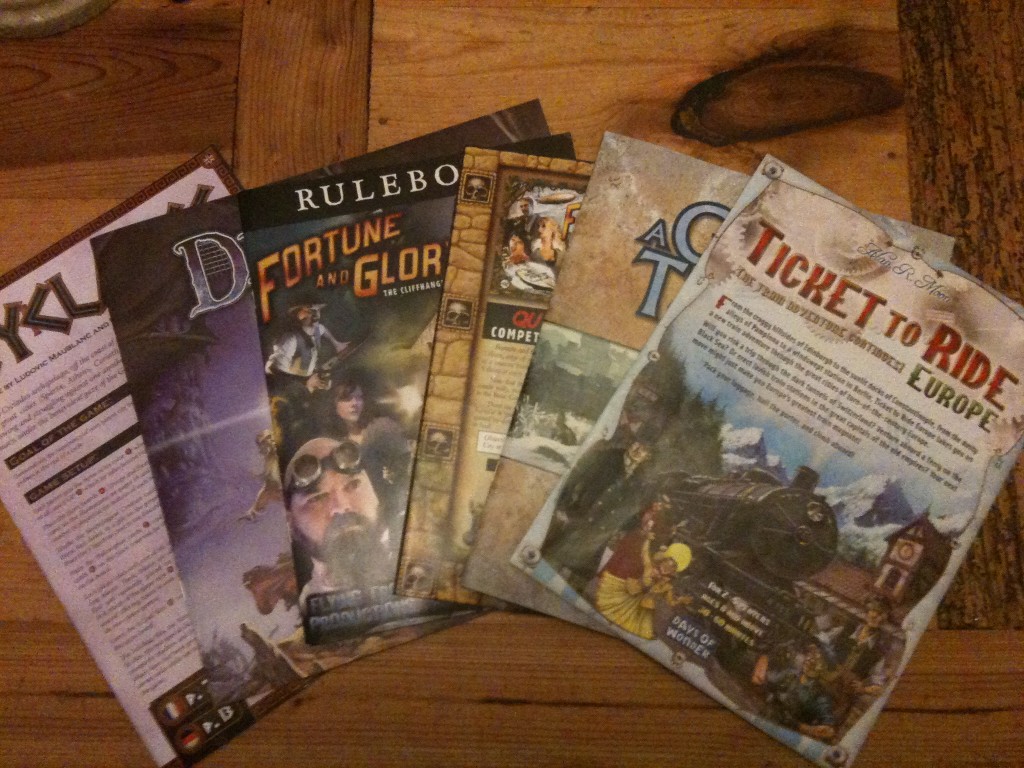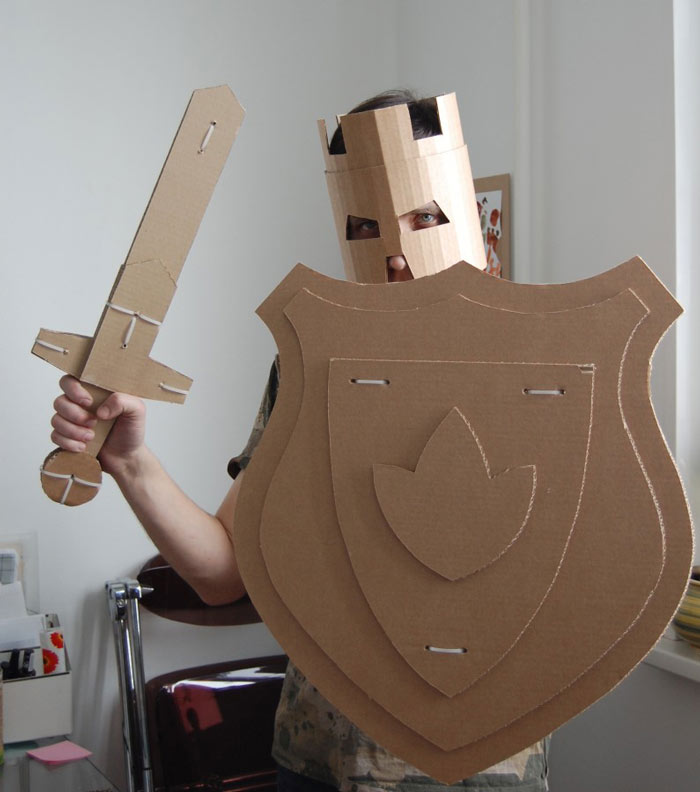I just returned from the Colorado Scottish Festival, my first adventure as a RenScot. The Renaissance Scots are a living historical organization that attends various festivals around the area of Colorado. If you would like more info check out their website here. I don’t wanna focus too much on them as an entity, but just know it was a grate time. My friends in the group that convinced me to join up are all very competent martial artists. Seems like a strange thing to mention until you realize that they are all sword fighters in this group. I had been debating all weekend whether or not I had the time/energy/will to commit to trying to learn their craft. Eventually, toward the end of the weekend, they pulled me out of the tent and started teaching me the basics. I am not going to go into them all here. What I would like to talk about today on Boxed Culture is how our experience in board gaming can help us understand other seemingly non-related activities better.
In short, most activities whether it be board gaming, sword fighting, or betting on a football game, take a certain set of skills. In each case you have to learn a base set of skills that will help you in most cases. You learn mechanics that help you succeed at a task. These are typically called heuristics. These are the basic methods at which you develop an understanding of an activity. In games most heuristics revolve around basic game structure. In Candy Land, you need to get to an end of the track, so moving toward it is typically better than moving backward from it. In sword fighting, heuristics come into play as well. Typically you don’t want to get your head chopped off so you want to block incoming strikes. In betting on the results of a football game the heuristics are that you want to make sure you have a good chance of getting out what you put in, at the very least. All of these activities have basic tenants that allow people who have never done them to have a good idea of how to possibly succeed at these tasks.
I love the fact that understanding this means you can excel at any task you try. When I was being taught sword fighting, the basic ideas made sense. Your body is split into quadrants and you cannot defend them all at once, but you can adjust to protect what you need to protect. You want to make sure your distance from your opponent is such that you are not going to get sliced, but that you can take advantage of openings. You want to keep you opponents on a line and move in such a way that opens them up using this idea of lines. All of these things make sense when you are told them. I mean, of course you don’t want to just let them chop you on the leg…So either move out of the way or block!

All very informative but none of them tell me how I go about finding the boxes that they are supposed to go in .
When we talk about heuristics we are referring to more than just the rules of a game. We are referring to the problem solving aspect that are in play when you are trying to succeed at a game. Yes the rules say that the person with the most points at the end of a game wins, but that may in no way help you understand how to get points. Just like in sword fighting, defeating your opponent is the goal, but how the heck do you do it? Now I also do not mean to say that once someone understands the heuristics they are an expert. Just because I know I need to keep my head attached or build the longest road doesn’t mean I know the best way how or can even preform the task when asked. But following heuristics does help someone developing these skills form a strong foundation. So next time you are performing an activity and you have the chance to talk to an expert ask them to explain the best way to accomplish the task and maybe you will be able to see how learning how to play board games has helped you develop real world skills. See you all next time!



